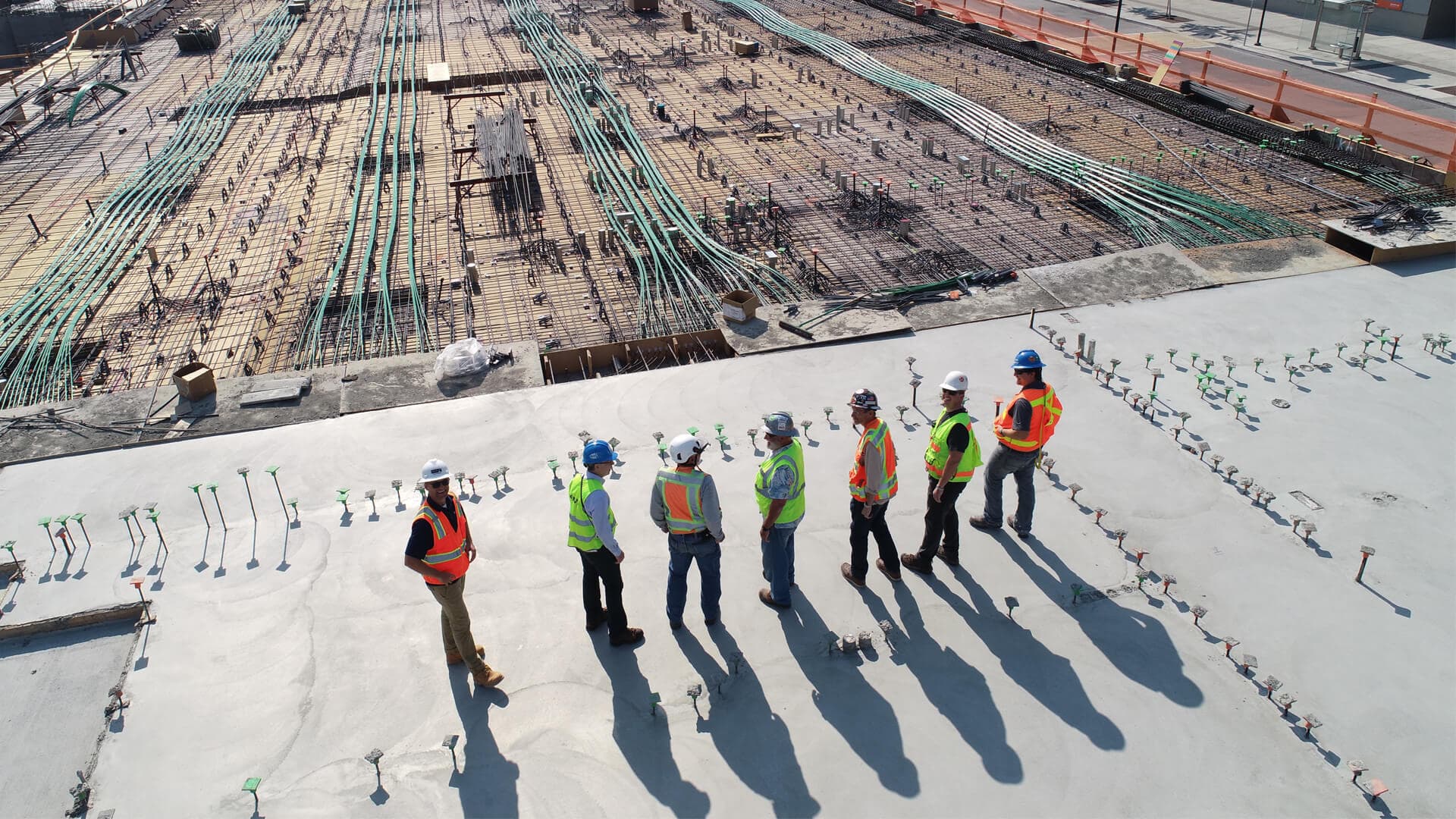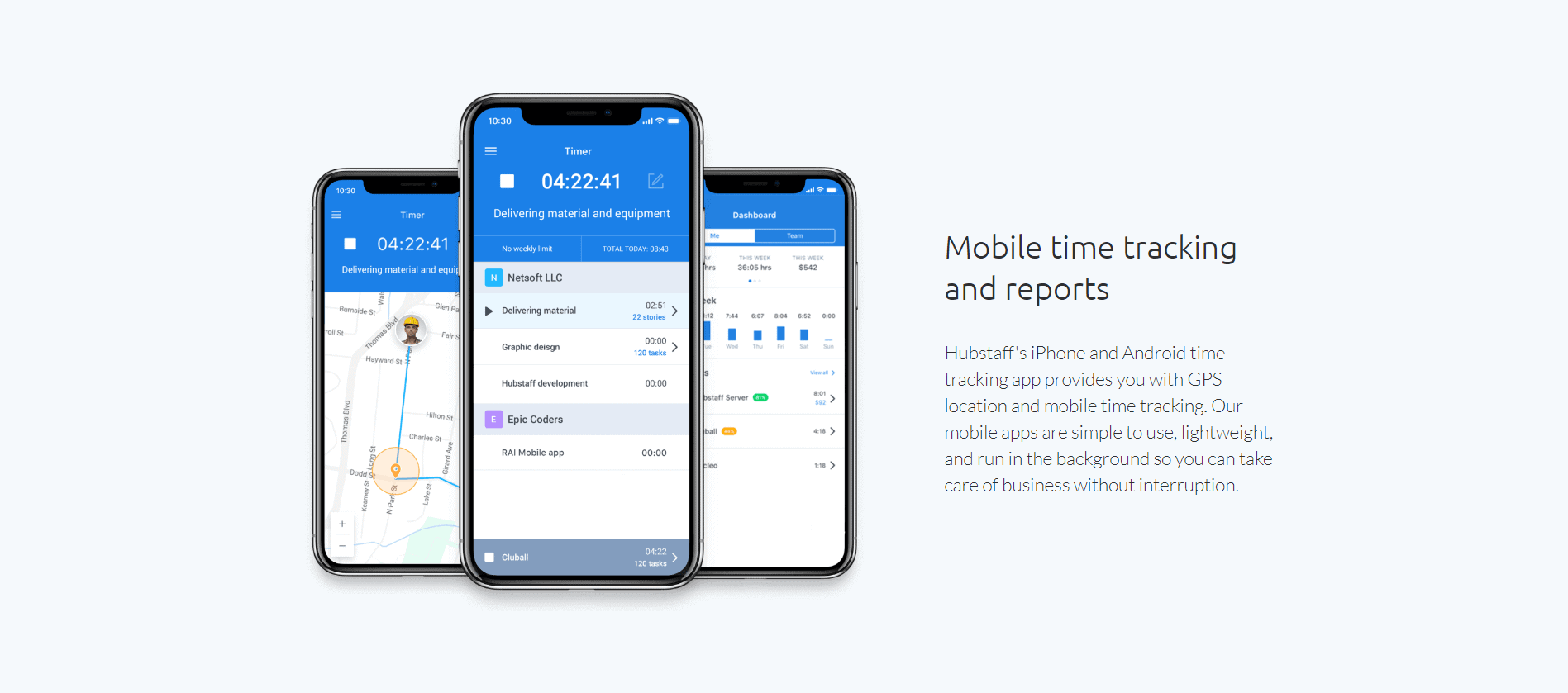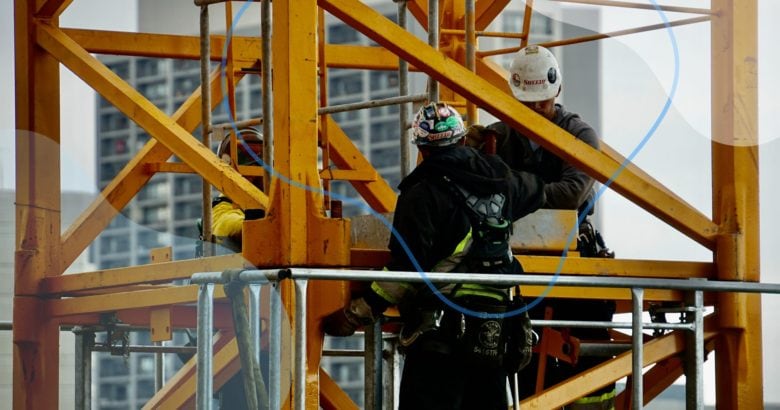Believe it or not, there is a right and wrong way to run and grow your business.
Building up your construction company is a lot like, well, building a house.
You need a firm and secure foundation to establish your business, you need the right people for the job, and you need to make sure you’re accounting for every possible outcome.
And, just like with a house, sometimes your business needs to grow, adapt, or change to accommodate new styles and ways of thinking. Or, maybe your business isn’t even an established company yet, and it still needs the right blueprints to get started.
Well, that’s exactly what we’re going to cover in this post. You’ll learn how to establish and manage your unique construction company properly and how to run your business like a pro.
Let’s get going.
Boost your team’s efficiency with Hubstaff's productivity tools
Try it free for 14 daysPlanning your blueprints
No two construction companies are made exactly the same. (Obviously.)
While Tom owns a home building business — flipping and doing new suburb builds — Carol runs a more mom-and-pop operation looking to break into commercial construction.
Because of this exact reason, no two companies are going to have the same master plan for success. A remodeling company isn’t going to value the same things as an electrical business will.
But, that doesn’t mean that best practices for all types of construction companies are going to be different. Everyone can agree that if your company isn’t managed the right way, you won’t grow, and your numbers will show that.
Take this, for example. According to a study, 75% of the mistakes made in the workplace are due to human error. What’s more, approximately 85% of those mistakes could have been avoided with better management methods.
As any good business person knows, mistakes are money out of your pockets that you don’t get back — regardless if it’s a broken window or a fried electrical box.
Manage construction projects better
Get 24 pages of free resources including a punch list template, project estimate, and more.
First, a few problems
Mistakes in management can be avoided, and before we can explain how to do that, we first need to look at some of the common roadblocks that pop up in construction companies. Don’t worry, we’ll keep this part short (so we can get back to the good stuff).
Chit-chat
We all know the stereotype — three burly guys in hardhats sitting outside a job site, chomping down on some double-stacks, and shooting the breeze. But that’s not the chit-chat we’re referring to here. One major issue with construction companies is miscommunication, which can lead to projects going awry (which we know you don’t want). Thankfully, by making sure everyone is staying in constant communication you can avoid this. We’ll cover more on this a bit later.
Too many cooks
Sometimes, there are just too many people in the process, which can make it extremely difficult to manage your team. This is where an established chain of command and process roadmap for your team comes in handy, allowing everyone on the team to see who’s next in any given process.
Only hiring the best
It’s unrealistic to imagine that everyone you hire, full-time or contract, is already the best in their field. Sometimes, your crew will need mentorship, training, and guidance from you — an area that, unfortunately, many managers tend to forget.
Not equipped for the job
To ensure your crew can get their job done efficiently, you need to give them the proper tools to do their jobs and make sure they know what needs to get done. That doesn’t always happen in construction companies and can often lead to confusion and, you guessed it, more mistakes.

How to manage and grow your construction business (like a boss)
So, yeah, lots of things can go wrong in construction. But, managing your team like a pro can help you avoid most of those problems. And, with some killer management, you can grow a construction company easily.
We’ve made that simple to do with these simple construction business ideas and tips. And don’t worry, we’ll keep this short:
Tip 1: Be the kind of leader you’d want for yourself
Being the boss means you also need to act like one. This doesn’t mean you should go around asking every single member of your crew to bring you a coffee (though that would be nice).
What this does mean is that you need to make sure that your crew respects you, listens to you, and wants to learn from you. Yes, this means there may be fewer happy hours, but when it counts, they’ll look to you for guidance, and you’ll naturally be in a better place to ensure greater efficiency in your work. Read more about qualities of a good leader here.
Tip 2: Hold out for the right people
A boss is only as good as their team members, so finding the right people is vital. Now, people in construction — flooring specialists, carpenters, roofers, butcher block countertop artisans — tend to learn their skills on-the-job. So, if you can’t find people with experience, make sure you have a training program in place to help your crew learn the skills they need.
Tip 3: Don’t bet it all on the ponies
Making sure your finances are in order is a big deal for construction companies. I mean, have you seen how expensive cranes and pavers are nowadays? Make sure you’ve got someone to look at your books and keep all your financial records in check. Though your spouse may be super good with numbers, it’s best to hire a professional accountant to handle the finances. This way, all your employees will also have a peace of mind knowing their cut will be fair every time.
Additionally, it’s important to stay up to date with your bills. Having your second-in-command help with the finances is an excellent way to get more eyes on the numbers and provide the crew with a peace of mind that the numbers are fair and ethical. Also, this is a good way to help train someone to take your place, if you ever decide to go into the ice cream making business instead (weirder things have happened).
Tip 4: Manage your clients well
Because without clients, you’d have no money. And no one wants that. Being an awesome manager means you have excellent communication skills. If you don’t have those, work on finding some. You’ll need to be able to talk your clients off a ledge when things go wrong and smoothe over tough situations to ensure client satisfaction. Not only that, but you’ll also need to be in good standing with all your distributors, retailers, subcontractors, and employees to keep the oil burning.
Tip 5: Keep it real and transparent
You can’t manage a team if you’re not real with your people. Keep everyone on your crew up to date with the goings-on of the business and share your wins and losses. This will help them feel like they’re part of the greater picture of your construction business, not just another cog in the bulldozing machine.
Tip 6: Use the right tools
Nope, we’re not talking about impact drivers here. Making sure you’re setting up your construction crew for success means having the right tools in place for them.

Tracking everyone’s time efficiently, paying your crew properly, and streamlining your invoicing can do a lot for your business in the long run. You can even add new technologies like geofencing to automate some of those tedious time cards. Platforms like Hubstaff (that’s us!) allow you to do this quickly and can even save you time during your workweek.
Tip 7: Know your elevator pitch
As a manager, you need to market your construction business and the work you do well. Being able to talk about what your company does clearly to people who have no idea what a pallet jack is could mean the difference between making a sale and having people brush you off.
Tip 8: Pour the money back into the business
If you want to grow your construction business, you need to spend money on it. So, take a look at your equipment, services, and tools and see which need a tune-up, replacement, or maybe just don’t belong anymore.
Tip 9: Start getting picky
Sometimes, it’s good to be a bit choosey. By holding out for the right clients, you can ensure a good body of work and, better yet, become a specialist in a specific field like constructing billion-dollar pools.
Tip 10: Join the competition
Sure, they might be your competition, but networking and joining a trade association can actually help grow your business. If you have a specialty, knowing other business owners in parallel trades could mean more collaborations in your future, which also means more projects, clients, and cash in your pocket.
Tip 11: Don’t sacrifice quality
A common mistake people make when growing their business is they let the quality of their work slip. Make sure that as you look to strengthen your company, you’re still focusing on the thing that got you to where you are in the first place.
Tip 12: Be willing to change things up
Construction is an ever-changing industry, and your business needs to be able to change with it. This isn’t a bad thing and should be looked at as a challenge and an opportunity to lead your team in new ways.
Tip 13: Provide excellent customer service
Construction companies often forget this one. Make sure you’re providing top-notch customer service for your clients. It could mean the difference between succeeding and failing.
Tip 14: Push your marketing efforts
Running a successful construction company means needing a more significant brand image. Make sure you’re pursuing new marketing outlets like social media and online content mediums. Word of mouth is good, and all, but Barb’s rave review will only go so far during wine night.
Now what?
Good question! Growing your construction business can feel extremely overwhelming, especially if you’ve been around a long time and a bit accustomed to what you do.
But it doesn’t have to be. Sometimes, you’ll just need to take a risk and see what happens. We’re not saying to go and rename your business right off the bat. Start with something small, like adding in new technology or trying a few new processes.
See how your team feels about them and, if they don’t work, try something else ‘til it sticks. It’s about working with your business and what feels right for you, not shoehorning in new ideas.
A great place to start is by updating your payroll, invoicing, and time tracking for your crew with Hubstaff. We mentioned it before, but Hubstaff makes it extremely easy for your whole team to track their hours without having to fuss with time cards.
Additionally, it allows you to pay your team all from one place without having to cross-reference other documents. You can even bill your clients and send out reports directly from Hubstaff, saving you quite a bit of time each week.
If you’d like to learn about how Hubstaff has helped other construction businesses, be sure to check out our case study on Everbuild Construction.
Subscribe to the Hubstaff blog for more posts like this
Most popular
How to Calculate a Raise: Practical Guide for Employers
By 2030, the US alone will lose $430 billion annually due to low talent retention — and a lot of this turnover stems from low pa...
How to Survive and Thrive in an 80-Hour Work Week
It’s hard to believe that only a century ago, the 80-hour work week was the norm in the United States. Then, in 1926, the Ford M...
Mastering Workforce Scheduling: Techniques and Tools for Success
Imagine a workday where scheduling your workforce effectively ensures that every shift is perfectly aligned with your business nee...
Top Time Trackers for Virtual Assistants: Enhance Efficiency and Accountability
Virtual assistants (VAs) have a lot of responsibilities — and so do the people who hire them. With so much to keep track of, a t...





